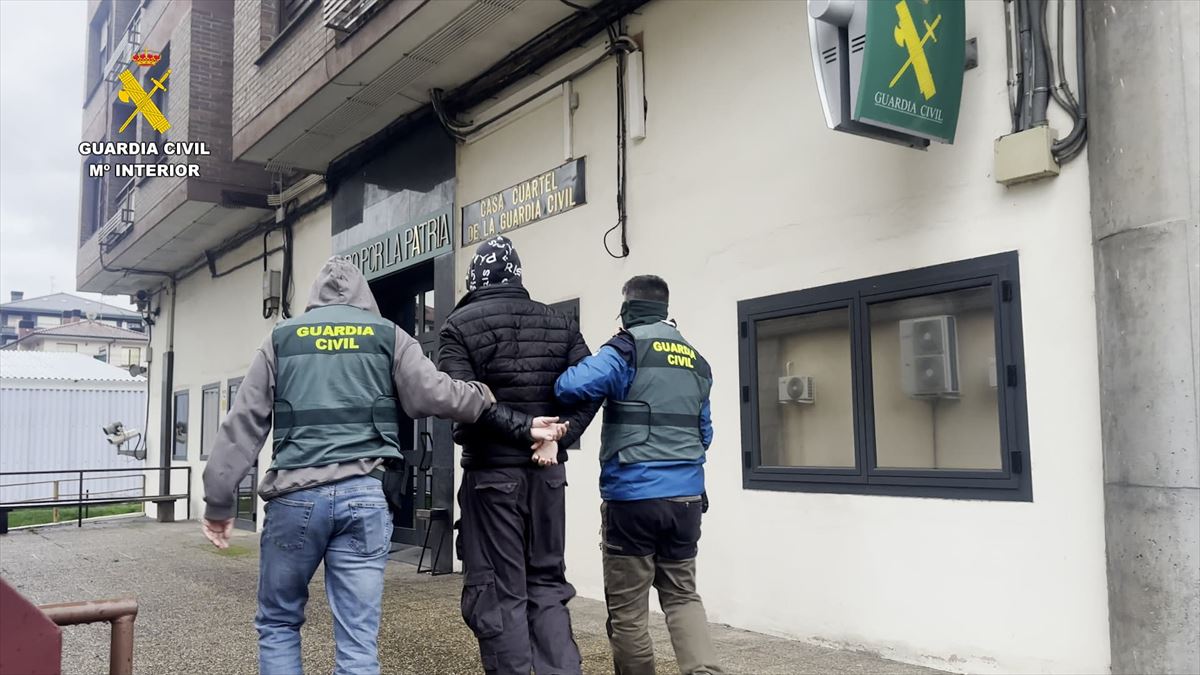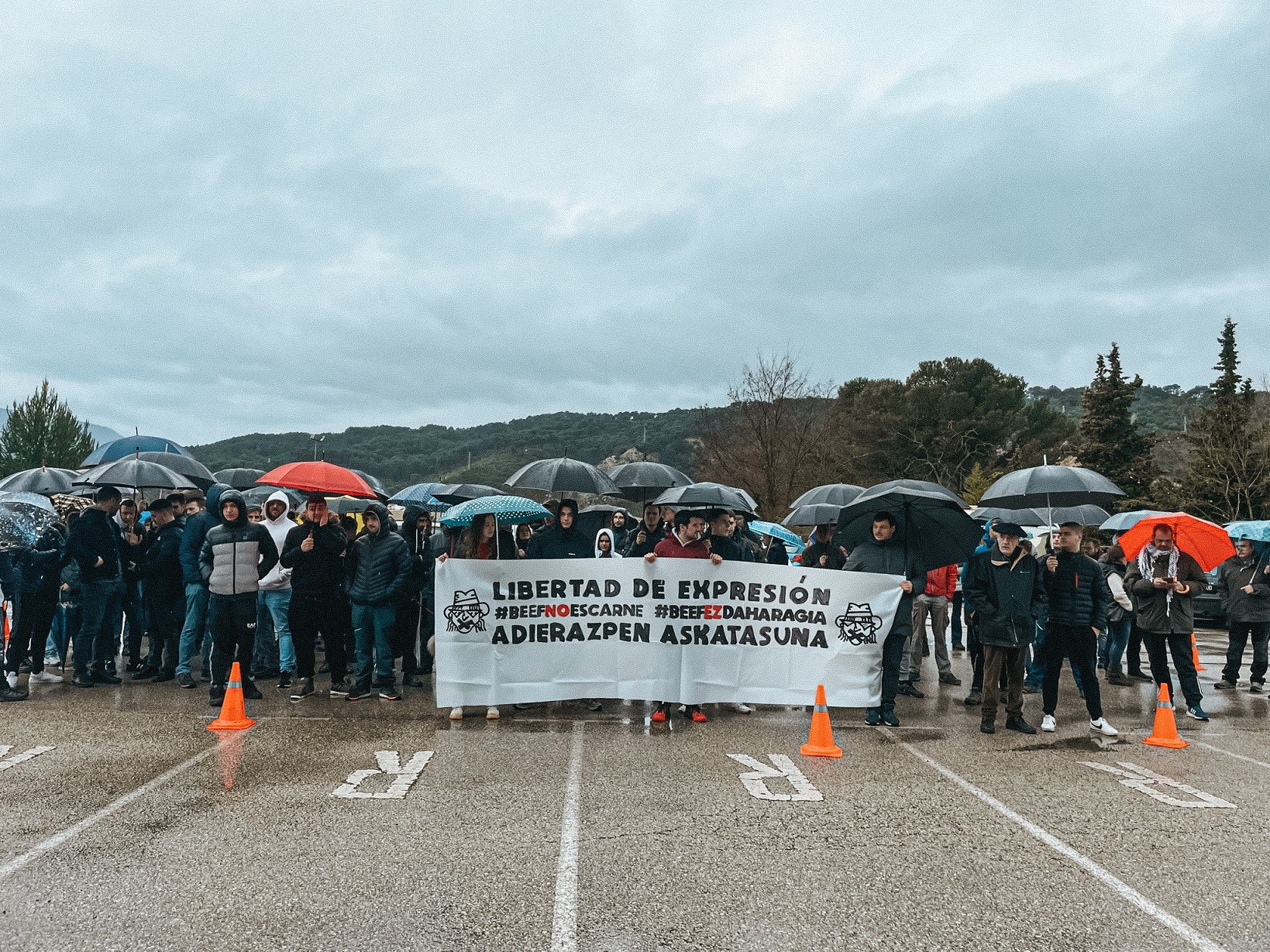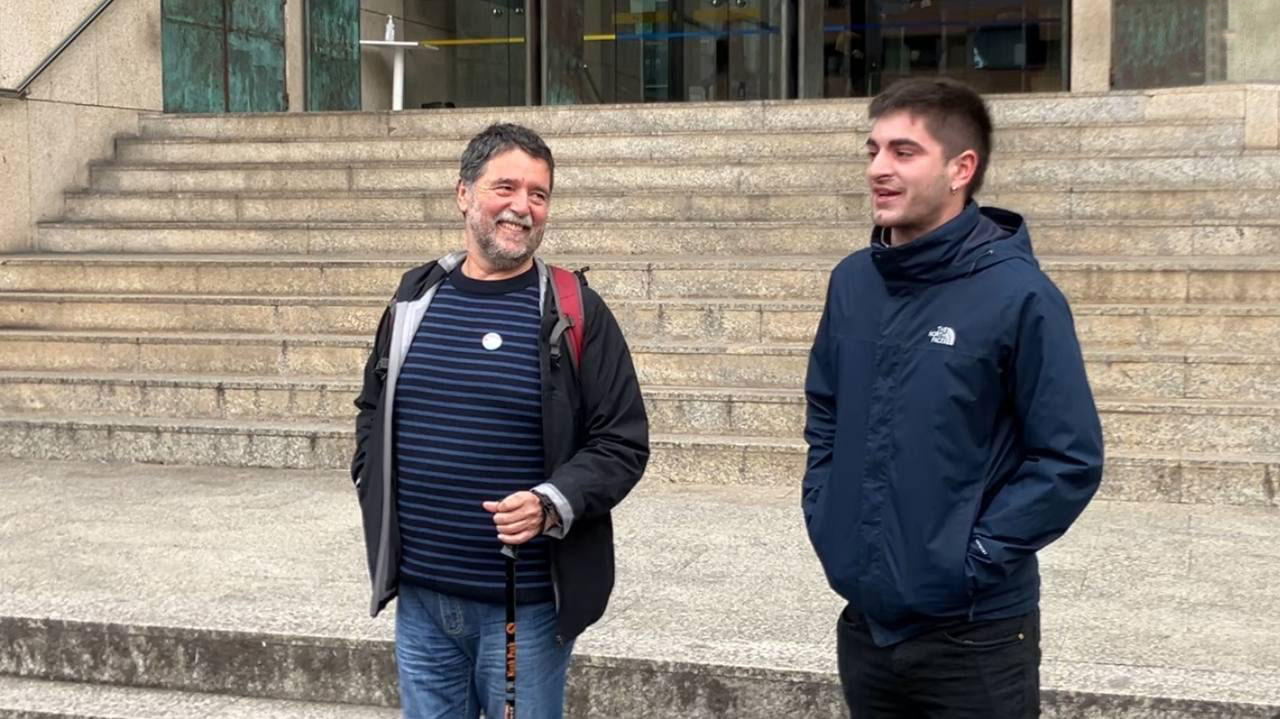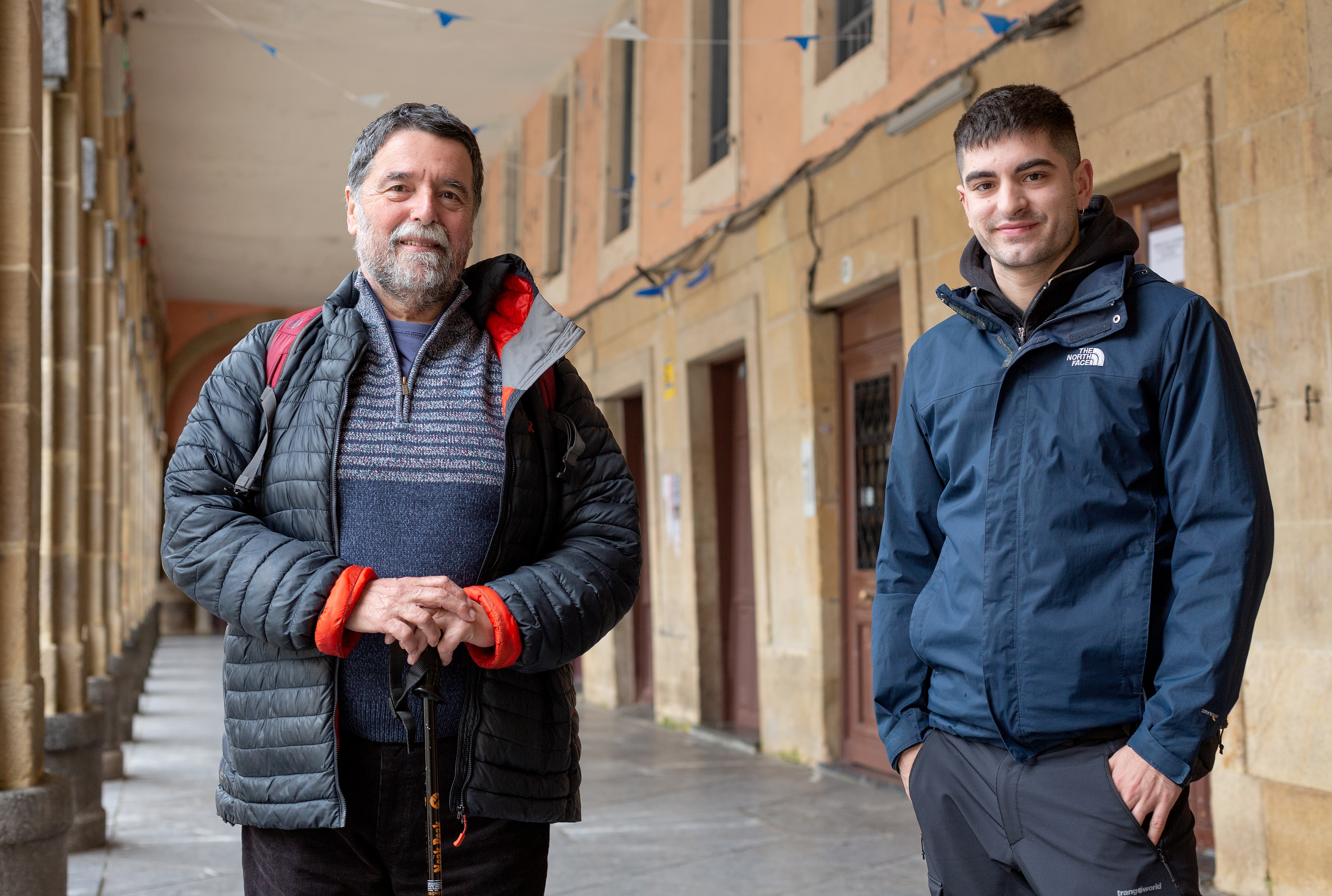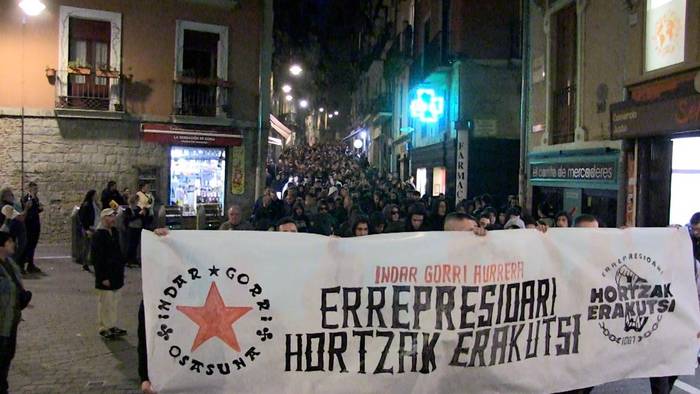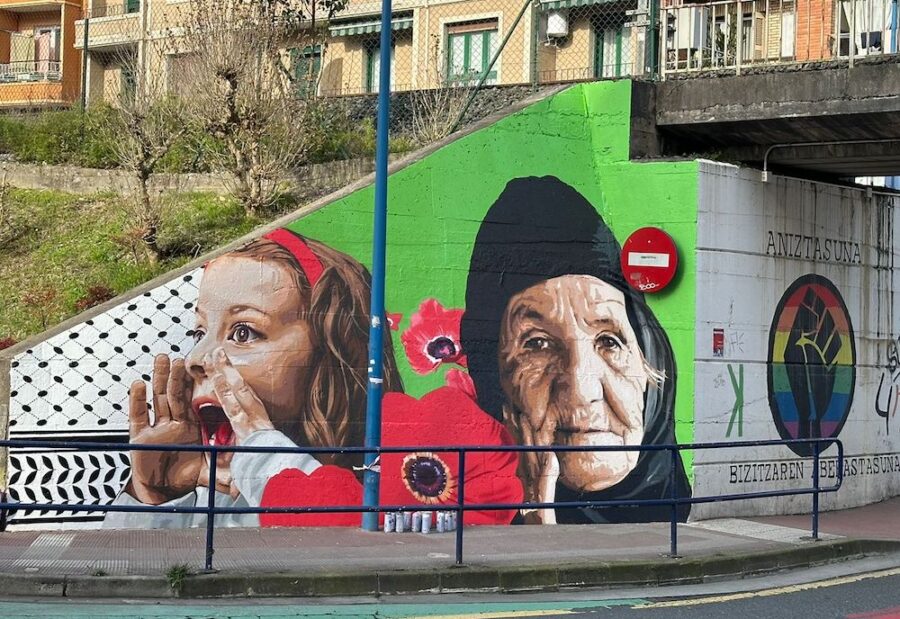A local police officer from Vitoria-Gasteiz to an ARGIA journalist: "I'm ordering you not to use your phone."
- The Local Police of Vitoria-Gasteiz broke into a occupied house on Thursday night, breaking the law. An ARGIA journalist was working there. One of the municipal police, ignoring the law and using lies, tried to hinder the journalist's work so that there was no graphic testimony of eviction. The audio between the municipal police and the journalist clearly shows what happened [see below].

Last Thursday, May 7, the Local Police of Vitoria-Gasteiz entered a occupied house in the Olarizu neighborhood. There lives a family, with three minors, who have been abandoned by social services in the midst of a pandemic. At the time when municipal police officers appeared, in addition to the family, there was also the ARGIA journalist and three other familiar family members. The Municipal Police officers ordered non-family people to go to the street. Once out, the ARGIA journalist pulled out his cell phone to document the event and then report.
Here you have the audio of the interview with the photos of the moment, and then you can read the transcription of the most outstanding passages translated into Basque.
- Do not use your mobile device
- I'll take a picture.
(...)
- Don't take a picture!
- I'm entitled to take a picture.
- You have a lot of rights, but also obligations.
OK, so ...
- Now I'm ordering you not to use your phone.
(...)
- I am entitled to this even if I am not a journalist.
I told him two or three times not to take pictures.
"And I tell him that I have a right. In addition, I have a right beyond being a journalist. And I do not say that, as the Spanish Constitutional Court says.
"I'll denounce you for disobedience. What do you think?
-As you want.
"Don't take us any pictures, sir!"
- You're a public official working in the street, in a public place...
- Don't take pictures!
- ...and the judges say we have the right to take pictures -- all people, not just journalists. And then you can put a fine based on the use of those photos.
- At the moment, disobedience.
"You'll see it.
- I told you not to use your cell phone.
"But I'm entitled, you can't give me the order that you put on your nose."
"Yes, yes, I can give it to you!" I am giving a fair order. Mobile disposable...
"I say it's not fair.
I can take it off.
He can't take it off.
- No? I can take it away and come back when I'm done.
- I'm entitled to take any photos I want, whether it's a journalist or not.
Ignorance or falsehood?
In addition to using a threatening tone, the officer provided erroneous information on the current legality, on fundamental freedoms or on the powers of the police. Citizens have the right to photograph or record while any public official works in a public space, whether it be journalists or not. If the subsequent use of these photographs was incorrect, it could be the subject of an administrative offence or fine. But under no circumstances, to take away a citizen's motive and accuse him of disobedience, as in this case the Vitoria-Gasteiz Municipal Police did. It is difficult to understand that such ignorance is manifested in the area of the fundamental rights and duties of citizens. Or should you think you lie? Both would be serious.
It wasn't just a single agent thing. Other fellow police officers, who listened to the conversation, did not turn to their colleague, but kept silent. Then came more cars from the Municipal Police (which are not recorded in the audio), and the one who seemed to be responsible for the operation told him that as a journalist he can take all the photos he wants. Subsequently, the journalist received no explanation or apology from the police.
The operation itself, illegal
The attitude of the journalist was not the only condemnable attitude of the police that day. Despite their occupation, the law prohibits the police from entering a house as they please. The law admits two reasons for intrusion: to avoid a crime being committed at the time, or to have a court order. On the contrary, the police must respect the right to privacy of people – unauthorized access to the house is a violation of privacy – and must conduct their actions “for the principle of minimum intervention”.
To enter Olarizu's house, municipal police needed permission from their relatives. If the permit is not requested or not received, the correct procedure would be to identify the persons of the household without entering the home and to make the relevant notifications. However, they beat the door of the zaguán and the windows of the house, ordered them to open and, upon opening, entered the house directly, without giving any information. After asking several questions in an aggressive manner, the Ertzaines identified the people residing on the spot and informed them that they would open a dossier of eviction, as well as the imposition of fines on three other people inside.
Regular censorship
Citizens, citizens' movements or associations of journalists have repeatedly denounced the illegal obstacles that the police places on citizens and journalists for their work. Without going any further, on the day of the general strike on 30 January the Local Police of Vitoria-Gasteiz charged journalists – and the political leaders of the city council endorsed their position. The day after this police operation in Olarizu, the Ertzaintza closed the Feminist Occupied Shock Point and Hala Bedi reported that the police had violated their journalists’ right to information.
Steilas considers out of place the effort of the Rectorate of the UPV/EHU to prevent the participation of a person through a communication at the congress on Sovereignty(s) held recently in our university. We do not understand the attempt to obstruct the academic activity of a... [+]









